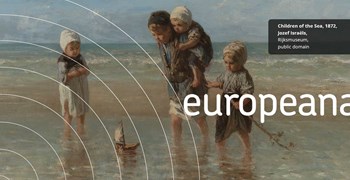Ivan Cankar – The Writer, The Migrant
Zala Mojca Jerman Kuželički of National and University Library in Slovenia introduces us to Ivan Cankar, who died 100 years ago today and is regarded as the greatest writer in the Slovene language.
Ivan Cankar, the first professional and most prolific Slovene writer and playwright, is mostly known for his skilful depictions of the petty bourgeoisie and the margins of society; his hometown Vrhnika; for the coffee he made his poor mother go beg for and then refused to drink, and the wine he’d never refuse to drink. He is hailed for his sweet language of sorrow and nostalgia, and the suffering somehow made beautiful.
What usually doesn’t come to mind is Vienna and migration. Cankar was a proud Slovenian, always giving praise to the Slavic nations and Slovene, but it must be noted that he spent a major and highly influential part of his most fruitful years in Vienna, Austria.
Vienna back then was, of course, the capital of Austrian Empire, Cankar’s own country. It only made sense at the time for any young person aspiring to any sort of greatness to pack their bags and leave (possibly by train, but mostly on foot) their home towns and villages for the broad, gleaming streets of the capital.

Ansicht von Wien aufgenommen von St. Stephansthurme, Johann Breyer, Österreichische Nationalbibliothek, public domain
Cankar joined the battalion of youngsters gravitating toward the centre of everything to continue his technical studies at the Viennese Technische Hochschule. While enamoured with the city, he quickly grew restless in his classes, dissatisfied with the underwhelming challenges and dry technical language. Deciding to enrol instead at the Department of Philology to study Romance and Slavic languages, he lost his scholarship and took to writing as a means of making ends meet. Thus began the career of Slovenia’s greatest writer.
The metropolis offered Cankar a most colourful array of people to get to know and be inspired by; there, he rubbed shoulders with other writers, thinkers, bohemians and many great personas of the time like Stefan Zweig and Sigmund Freud. He participated in heated literary discussions in the notorious Beethoven Café, had easy access to all the important magazines, and got to experience first-hand the latest literary trends. His career blossomed. With his sardonic talent for hitting the nail on the head and his unwavering independence, he was quickly becoming the most sought-after writer back home. The conservatives feared him, the liberals ridiculed him; the public adored him.
At the same time, living in Vienna brought Cankar face to face with a new level of poverty and profound homesickness; an experience that crucially influenced his work and radicalised him. His political ideas about the clergy, the Austrian Empire, socialism and Slavic nations earned him an enormous amount of censorship, yet he persisted as the voice of the voiceless, the beacon of hope for the hopeless, the empathetic hug for the untouchables.
In 1908, after ten years of the metropolitan life, Cankar left Vienna. Growing perhaps tired of the constant hubbub of the great city, he retired to Rožnik, a small hill perched atop Ljubljana. He continued writing profusely until his untimely death at 42, on 11 December 1918, his Vienna-won wisdom infusing every letter. It is for Cankar’s deep understanding of the human psyche and the constant calling out of the injustices of human society that we still cherish his work today.
The National and University Library is currently displaying “I AM CANKAR – THAT SAYS IT ALL!” an exhibition presenting a selection of letters from Ivan Cankar’s legacy. The exhibition runs until 26 January 2019. More info.
Featured image: Poet Peter (left), Ivan Cankar; portrait of Ivan Cankar (right) by Fran Vesel; National and University Library of Slovenia, public domain














